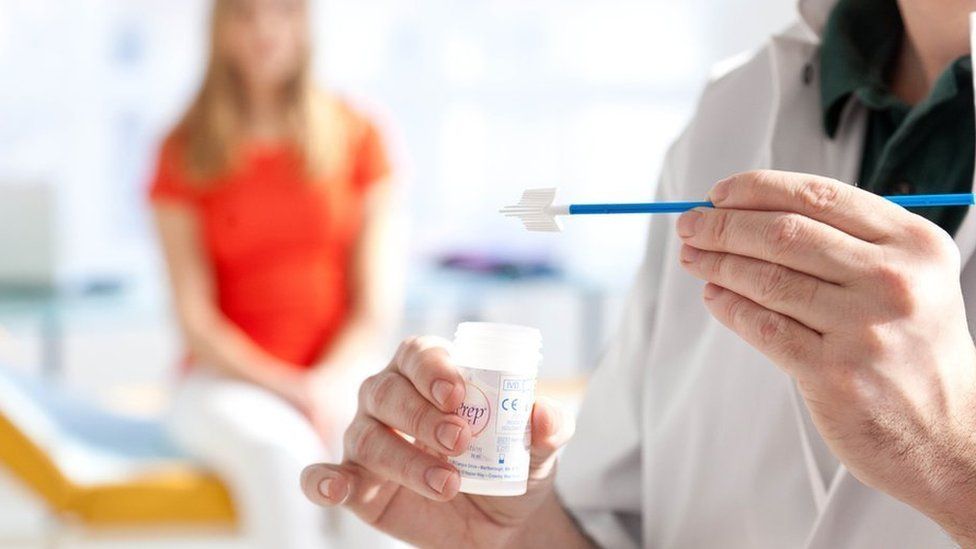“I got my cervical screening letter in November and I’ve been putting it off because I don’t want to do it – I don’t think any girl really wants it done to them.”
Elena Coley Perez is 26 and due to have her first cervical screening – or smear test – that examines the opening to your womb from your vagina.
Screening invites are sent to women aged between 25 and 64, but some do not take up the offer.
NHS records show 4.6 million women – or 30% of those who are eligible – have never been screened for cervical cancer or are not up to date with their tests.
Women are sometimes too embarrassed to come forward or put it off because they are anxious, surveys have found.
Struggling to book their tests due to GP backlogs will not help the situation, say charities.
Elena has told the BBC she was already worried about having a smear test, and the difficulty she experienced in booking one put her off even more.
“I got another letter in December so I went to book online because with my local GP you have to go through this long-winded form,” she said.
“I typed in cervical screening and nothing was coming up, so I ended up waiting 35 minutes on the phone to be told they had no appointments for the rest of the year and to phone back in the new year.”
Elena then tried again in January and was told there was no availability.
“At this point I was like, ‘what’s the point?’ – you’re trying to do something that can hopefully prevent you from getting cancer and you get to the doctor’s surgery and you just get a ‘no’ – it’s really off-putting,” she says.
“This is my first smear and it’s daunting enough as it is, because the letter doesn’t really explain [what I’m going to have done]”.
Administered by a nurse or GP, the test involves taking a small sample of cells from the cervix to check for certain types of human papillomavirus (HPV) infections.
High-risk types of HPV can cause abnormal tissue growth which can lead to cancer.
Elena eventually managed to book a cancellation appointment after her third attempt at trying.
Nicky Bennett, a 42-year-old clinical trainer, has also had the same experience as Elena when trying to book a routine smear test.
“I had my reminder letter in October 2022 and tried to book in the surgery when I went in for a vaccine,” she said.
“At the reception desk they said I would have to ring up and couldn’t tell me when the next available appointment was. That’s really hard because I travel round the country so I’m not available to just do that.”
Nicky was still trying to book her appointment when she spoke to us and said she spent the morning on hold to her doctors for more than an hour and a quarter.
“You give up and that’s part of the problem – you know you need it done but then when you’re at work and you can’t get through and you just delay it,” she said.
“And with something like a smear test – no-one wants to rush to have that done.”

The BBC put the difficulties these women had faced to the Department of Health and Social Care, which said it was “taking action” to improve the situation for those who needed smear tests.
“We are expanding the number of settings for screenings, opening up 24/7 laboratory screening so people get results faster, as well as making appointments available during evening,” a spokesperson said.
An NHS spokesperson told the BBC it had carried out “3.5 million cervical screening appointments in 2021/22, an increase of 9.4% since before the pandemic, and a record number of people have been invited for screening in the last year”.
The charity Jo’s Cervical Cancer Trust says half of all cervical cancers occur in women who have never been screened or are not up-to-date with screening.
Its chief executive, Samantha Dixon, has told the BBC: “If vital appointments like cervical screening become harder to access there is the very real potential that women could give up or be put off attending.
“Screening can already be difficult to attend, for example due to past trauma or fears, and we should be making it easier to access not adding new challenges.
“Through screening and the HPV vaccination we can eliminate cervical cancer, but that day will get further away if screening uptake falls.”
